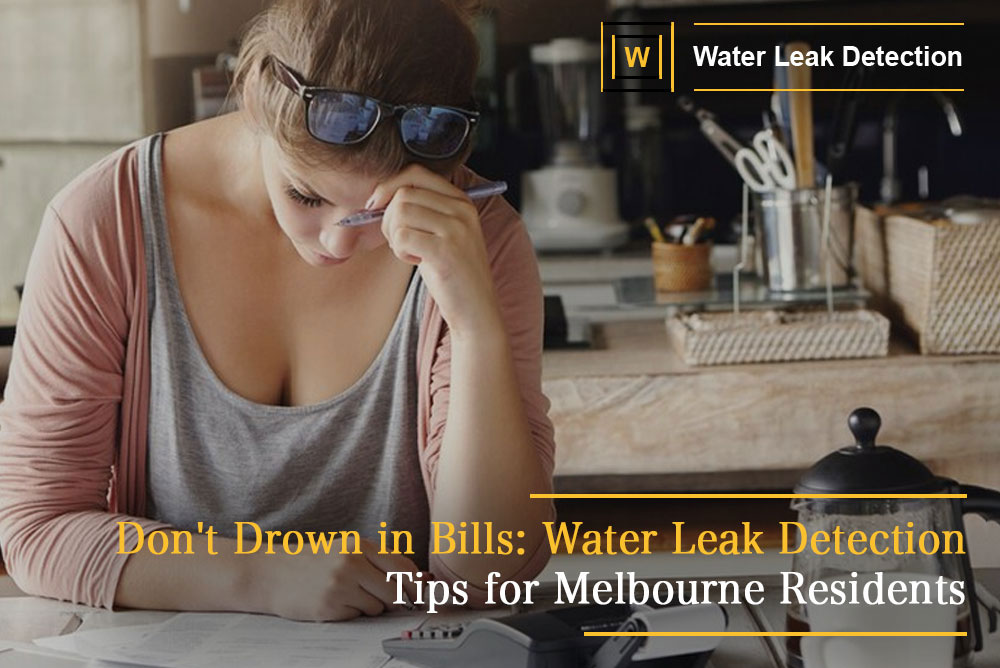
Water leaks are more than just a nuisance – they can lead to significant water waste, property damage, and inflated water bills. By staying proactive and vigilant, Melbourne residents can protect their homes and finances from the detrimental effects of leaks.
In this guide, we’ll explore some essential water leak detection tips tailored to Melbourne’s unique climate and plumbing systems.
Regular Inspection
Regular inspections are the cornerstone of effective leak detection. Melbourne residents should make it a habit to conduct visual inspections of their plumbing system at least once a month.
Start by checking under sinks, around toilets, and near water-using appliances for any signs of moisture, corrosion, or dripping water. Pay special attention to hidden areas such as crawl spaces, basements, and attics, where leaks may go unnoticed for extended periods.
Monitor Water Usage
Monitoring your water usage is a proactive way to detect leaks early. Keep track of your water bills and be alert to any sudden spikes or fluctuations in consumption. An unexpected increase in water usage could indicate a hidden leak that needs to be addressed.
Consider installing a smart water metre or leak detection device to provide real-time data on your water usage and alert you to any abnormalities.
Check Water Meter
Your water metre can be a valuable tool for detecting leaks. To perform a water metre check, start by turning off all water sources in your home, including faucets, toilets, and appliances.
Take note of the reading on your water metre and wait a few hours. If the metre reading has changed during this time, it could indicate a leak somewhere in your plumbing system. Conducting regular water metre checks can help you catch leaks early and prevent water waste.
Look for Signs of Leaks
Being able to recognise the signs of a water leak is essential for early detection. Keep an eye out for water stains on walls or ceilings, damp or musty odours, and peeling paint or wallpaper, as these could indicate hidden leaks.
Additionally, be vigilant for less obvious signs such as unusually lush patches of grass in your yard, which could signal an underground pipe leak. By familiarising yourself with these signs, you can take swift action to address leaks before they cause extensive damage.
Conduct Dye Test
A dye test is a simple yet effective way to check for leaks in your toilet. Start by adding a few drops of food colouring to the toilet tank and wait several minutes. If the colour appears in the toilet bowl without flushing, it indicates a leaky flapper valve that needs to be replaced.
Performing a dye test regularly can help you identify and fix toilet leaks, which are a common source of water waste in many homes.
Utilise Technology
Advances in technology have made it easier than ever to detect and address water leaks. Consider investing in smart leak detection systems that use sensors to monitor water flow and detect leaks in real time.
These systems can alert you via smartphone app or email if they detect any abnormalities, allowing you to take prompt action to mitigate damage. Additionally, smart irrigation systems can help you conserve water outdoors by adjusting watering schedules based on weather conditions and soil moisture levels.
Seek Professional Help
If you suspect a water leak but are unable to locate it on your own, don’t hesitate to call in a professional plumber. Plumbers have the expertise and specialised equipment to detect and repair hidden leaks quickly and effectively.
Whether it’s a burst pipe, a hidden underground leak, or a malfunctioning water heater, a qualified plumber can diagnose the issue and recommend the appropriate course of action. While hiring a plumber may involve some upfront cost, it can ultimately save you time, money, and frustration in the long run by preventing extensive water damage to your home.
Take Preventive Measures
Prevention is always better than cure when it comes to water leaks. Take proactive steps to maintain your plumbing system and prevent leaks from occurring in the first place. This includes insulating exposed pipes to prevent freezing in cold weather, repairing dripping faucets and showerheads promptly, and replacing old or worn-out plumbing fixtures.
Additionally, consider installing water-saving devices such as low-flow showerheads and faucets to reduce water usage and minimise the risk of leaks.
Final Thoughts
Water leaks are a common problem that can have serious consequences if left unchecked. By following the ten water leak detection tips outlined in this guide, Melbourne residents can protect their homes, conserve water, and avoid unnecessary expenses.
From conducting regular inspections and monitoring water usage to utilising technology and seeking professional help when needed, there are many proactive steps you can take to detect and address leaks early. Remember, staying vigilant and proactive is key to maintaining a leak-free home and ensuring the long-term health and integrity of your plumbing system.
If you suspect you have a water leak, please call us at Water Leak Detection for a free consultation today on 1300 425 325 or leave an inquiry.

